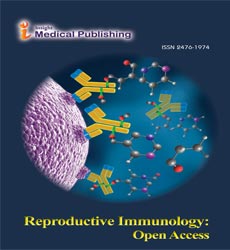Abstract
Role of Non-Invasive and Invasive Testing in Pregnancy in Patients with IVF and PGT
More than five million babies are born after Assisted Reproductive Technologies (ARTs). Nowadays ARTs are applied not only for infertile couples but also for couples with monogenic diseases and chromosomal abnormalities. Prenatal genetic testing although still not accepted as a standard procedure for couples requiring IVF has been widely used to end the transmission of genetic diseases. PGT can be applied as Prenatal Genetic Testing for Monogenic diseases (PGT-M), Prenatal Genetic Testing for Aneuploidies (PGT-A) and Prenatal Genetic Testing for Structural Rearrangements (PGT-SR). The accuracy of the PGT is still not 100% and hence couples needs to be counselled about the necessity of performing further non-invasive or invasive testing in pregnancy. Both PGT and NIPT (Non Invasive Prenatal Testing) are associated with false positive and false negative results due to trophoblast-derived mosaicism. First trimester combined screening test has been the gold standard for calculation of the risk for Trisomy 21, 13 and 18 with a detection rate of 95% when nuchal translucency, nasal bone, ductus venosus and tricuspid valve blood flow are assessed. It involves also early assessment of fetal anatomy and detection of major fetal defects in the first trimester. The management plan for IVF patient with PGT should be first trimester screening test, followed by comprehensive counselling and reassurance or recommendation for NIPT or invasive testing depending on the findings. The role of the IVF specialist is to recommend the correct test for the correct patient. Fetal medicine specialist
Author(s):
Desislava Markova
Abstract | PDF
Share this

Google scholar citation report
Citations : 237
Reproductive Immunology: Open Access received 237 citations as per google scholar report
Abstracted/Indexed in
- Google Scholar
- Sherpa Romeo
- China National Knowledge Infrastructure (CNKI)
- Secret Search Engine Labs
Open Access Journals
- Aquaculture & Veterinary Science
- Chemistry & Chemical Sciences
- Clinical Sciences
- Engineering
- General Science
- Genetics & Molecular Biology
- Health Care & Nursing
- Immunology & Microbiology
- Materials Science
- Mathematics & Physics
- Medical Sciences
- Neurology & Psychiatry
- Oncology & Cancer Science
- Pharmaceutical Sciences

